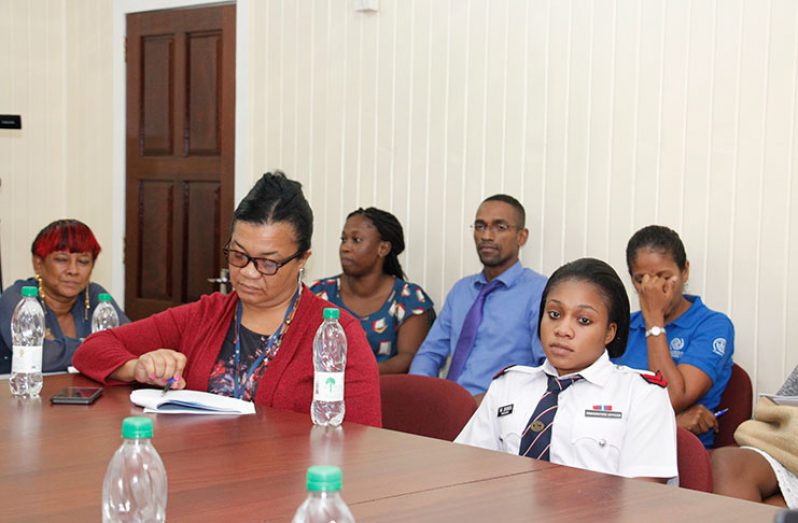THE Ministry of Social Protection, through its Sexual Offences and Domestic Violence Policy Unit and the United Nations Population Fund (UNFPA), are partnering to generate a referral pathway for the Venezuelan survivors of Gender-Based Violence (GBV).
The partners, on Thursday, met with stakeholders to identify key service providers, the types of services offered to GBV survivors, and to generate a map of services with key contact information. Gender-Based Violence Specialist, UNFPA, Ms. Karly Bennett, revealed that due to the political and economic crisis in Venezuela, there are currently 177,000 migrants in the Caribbean and an estimated 30,000 in Guyana.
Therefore, UNFPA, along with the government, and other UN agencies including the International Organisation for Migration, recently conducted an inter-agency rapid gender-based violence assessment in Regions One, Four and Seven.

“What came out of the report is that some of the major concerns are around trafficking, sexual violence, survival sex, sexual exploitation and abuse, harassment and IPV or domestic violence. We see this a lot in emergencies, this kind of convergence of sexual violence, trafficking and survival sex, that means there is a combination of people trafficked for sexual servitude,” Ms. Bennett explained.
In light of the findings, the GBV specialist recommended that the first step to address this issue is service mapping. During this step, the aim is to bring together key players in each region and map the services available for GBV survivors.
The next step highlighted by Ms. Bennett is to make a referral pathway including brochures or leaflets with all the requisite information to distribute to victims. Ms. Bennett recommended the training of frontline providers including immigration, police officers and social workers, to strengthen their referral systems.
Manager of the Sexual Offences and Domestic Violence Policy Unit, Ms. Akilah Dorris, presented on the national response to gender-based violence in Guyana. She explained that her unit does not have access to readily-available information on GBV in Guyana and relies on reports shared by the Guyana Police Force (GPF) and very few partners.
She explained that her unit is governed by the 1996 Domestic Violence Act and the 2010 Sexual Offences Act, which were both amended. Both acts provide basic provisions for persons who were identified as victims of sexual violence, GBV or domestic violence; as well as the mechanisms to hold perpetrators accountable for their actions.
According to the manager, the recently drafted national plan of action which focusses on the protection of victims, prevention of GBV, sexual and domestic violence, prosecutions, rehabilitation of victims, among others, will soon be approved for implementation.
In the interim, the Sexual Offences and Domestic Violence Policy Unit has developed protocols for police officers, medical practitioners and prosecutors to address sexual violence related matters. With support from the UNFPA, a consultancy that will see the development and implementation of an Essential Services Package for survivors of gender-based violence, is being undertaken.
Representatives from Women Across Differences, International Office of Migration, Counter Trafficking Unit, Blossom Inc., Childlink, Guyana Responsible Parenthood Association, Ministries of Communities and Public Health, Guyana Police Force and the Guyana Sex Worker Association, were present at the workshop.



.jpg)








